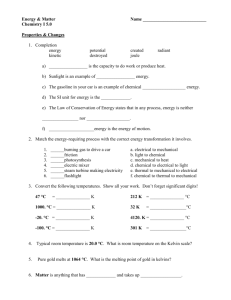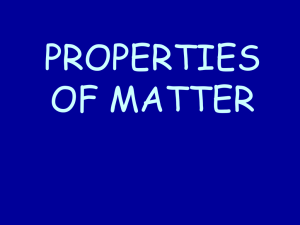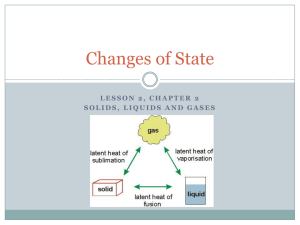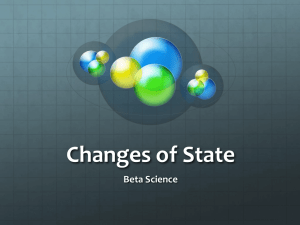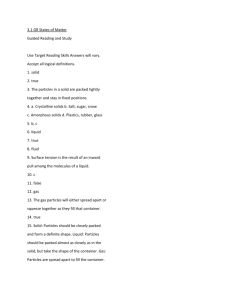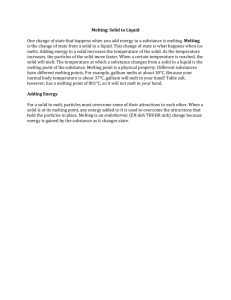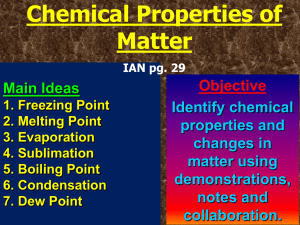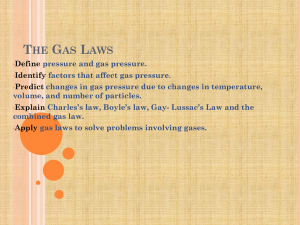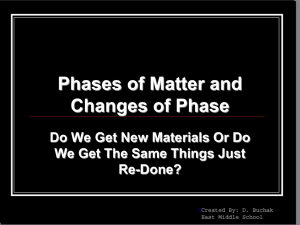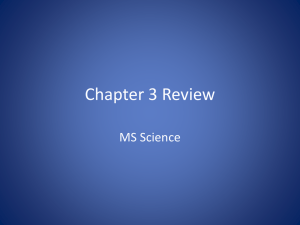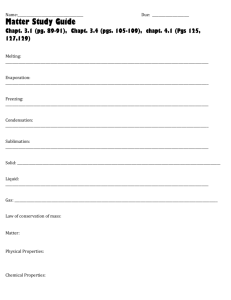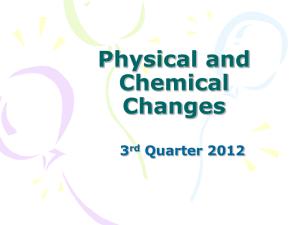Discover Chemistry Workbook Page 1
advertisement
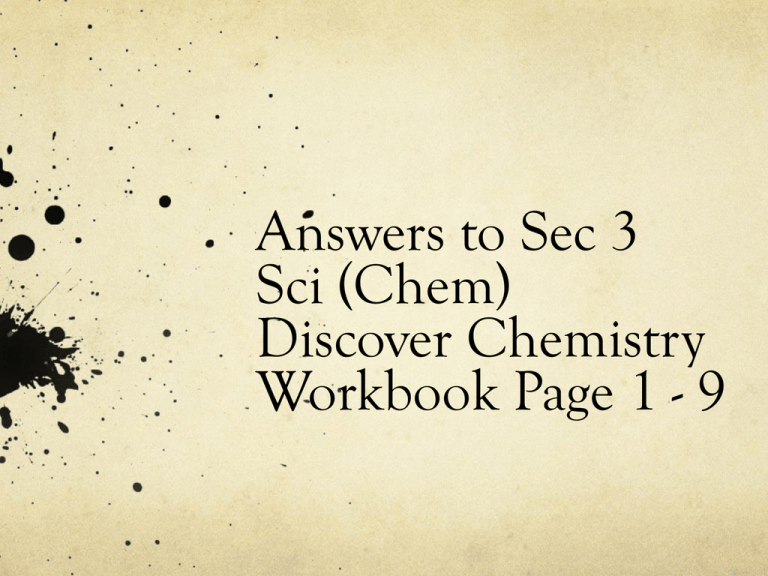
Answers to Sec 3 Sci (Chem) Discover Chemistry Workbook Page 1 - 9 Page 1 Arrangement of particles (in solids): closely packed and vibrate about fixed position Arrangement of particles (in liquids): slide over each other and move around randomly Liquid Freezing Solid Gas Condensation Liqiud Gas Condensation Solid Arrangement of particles (in gas): spread far apart and move randomly at great speed Page 2 1. D (Matter can be found in space, in non – living things and may not be solid) 2. A (Gas does not have fixed volume) 3. B (Learn how to draw the arrangement of particles in the three states) 4. B (heat absorbed increases kinetic energy) Page 3 1. D (Biggest difference between melting and boiling point, gives the largest range of being a liquid) 2. A (because its melting point is below 30 oC) 3. C (During condensation, gas particles loses kinetic energy, move closer together and forms back the liquid structure) 4. D (solid Sublimation gas) Page 5 / 6 a) A – B : Melting C – D: Boiling E – F: Condensation G – H: Freezing b) Physical state of methanal: Gas Physical state of selenium: Solid c) About 700 oC. Selenium will turn into gas (vaporize) around this temperature. Page 6 / 7 1. C (iodine sublimes) 2. B (see graph) 3. D (particles fixed in position particles close together and move freely: solid liquid: Melting) 4. B (Bromine is liquid at temperatures between melting point –7 oC and boiling point 59 oC) 5. C (X liquid, Y gas, X between – 95 and 70 oC, Y above 70 oC) 6. B ( Boiling water 100 oC, L is liquid at room temp, Boiling point of L between room temp and 100 oC) Page 7 / 8 7ai) State of M: Gas 7aii) State of N: Liquid 7bi) A could be water. Its melting point is 0 oC and its boiling point is 100 oC, which are the same as those of water. 7bii) All the substances have melting points below room temperature and boiling points above room temperature. Therefore they are liquids at room temperature. 7biii) D Page 8 / 9 8a) Chlorine monoxide 8b) It would start to boil and change to gaseous form. 8c) Chlorine monoxide and sulphur dioxide 8d) Chlorine monoxide Page 9 9a) The particles of a gas are moving randomly at great speed and eventually bump onto the wall of the container. As a result, the gas exerts pressure on the walls of its container. 9b) An increase in temperature causes the particles to move faster. The particles therefore bump onto the wall of the container more frequently. As a result, the pressure is increased.
